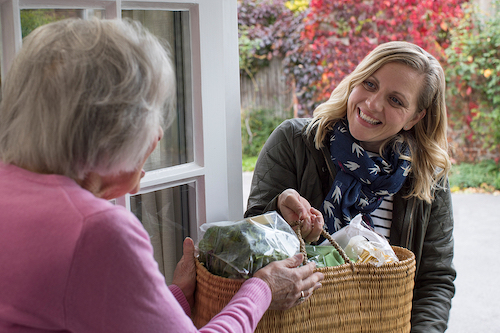 Feeling low? Performing a good deed for others may help.
Feeling low? Performing a good deed for others may help.
Research published in The Journal of Positive Psychology found that people experiencing symptoms of depression and anxiety saw improvements in their symptoms when they performed acts of kindness.
“We found that performing acts of kindness led to greater improvements in depression/anxiety symptoms and life satisfaction than using automatic thought records (a cognitive therapy technique in which one reframes recurring negative thought patterns). Crucially, we also found that performing acts of kindness led to greater improvements in social connection than both automatic thought records and planning enjoyable social activities (the latter of which was a technique drawn from a CBT-based treatment for depression known as behavioral activation),” David Cregg PhD, co-author of the study and a researcher at The Ohio State University told Theravive.
Acts of kindness were also found to be the only intervention the researchers tested that made people feel more connected to other people.
“We also found that people in each of these groups – those doing acts of kindness, thinking about things differently, and spending time doing enjoyable activities with others – all reported feeling less depressed and anxious after five weeks of the study and these results were maintained for an additional five weeks after the interventions,” Dr. Jennifer Cheavens, co-author of the study and a professor of psychology at The Ohio State University told Theravive.
In undertaking the study, the research enlisted 122 people from Ohio with moderate to severe symptoms of anxiety, stress and depression.
The participants of the study were split into three groups. Two of the groups were given techniques that are common in cognitive behavioral therapy for depression: cognitive reappraisal and planning social activities.
Those in the cognitive reappraisal group were asked to keep records at least two days out of each week that assisted them in identifying negative thoughts and reframing their thoughts in a way that would reduce their symptoms.
In the planning social activities group, the participant were asked to plan social activities two days out of the week.
The third group was asked to perform three acts of kindness, big or small that would benefit other people or make them happy for two days of the week.
Some of the acts of kindness were leaving a sticky note for a roommate with encouraging words, baking cookies for others and offering to give a ride to a friend.
All three groups followed their instructions for five weeks, when they were evaluated by researchers. They were evaluated again five weeks later.
The researchers found that all of the interventions resulted in an increase in life satisfaction as well as reduction in symptoms of anxiety or depression.
But the acts of kindness intervention had the added benefit of helping the participants feel more connected with others.
“There seems to be something about doing acts of kindness for others that causes us to lose sight of our own worries, concerns, etc., and to become absorbed in the needs of another. It shifts our focus from our own suffering to the needs of others and perhaps causes us to lose sight of our own difficulties for a time,” Cregg said.
“There is also plenty of research out there on how doing kind acts for others is mutually beneficial for relationships (i.e., both the giver and the receiver benefit), and having those strong relationships provides a buffer for mental health in the long run.”
The study authors argue their study highlights that even limited amounts of CBT can be helpful, and that something as simple as an act of kindness towards others can make a difference.
“The kind actions in our study were not, for the most part, grand acts. They were simple, everyday actions like texting a word of encouragement to someone or baking cookies for friends. If you’re feeling depressed and understandably not feeling like you have the energy to do activities, start with something small – the smallest step you’re able or willing to take. You might find that this one small act of kindness leads to more momentum and energy to do yet more kind actions,” Cregg said.
Elizabeth Pratt is a medical journalist and producer. Her work has appeared on Healthline, The Huffington Post, Fox News, The Australian Broadcasting Corporation, The Sydney Morning Herald, News.com.au, Escape, The Cusp and Skyscanner. You can read more of her articles here. Or learn more about Elizabeth and contact her via her LinkedIn and Twitter profiles.